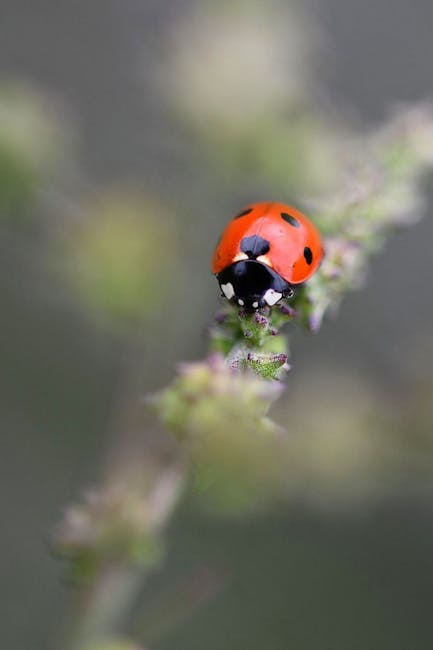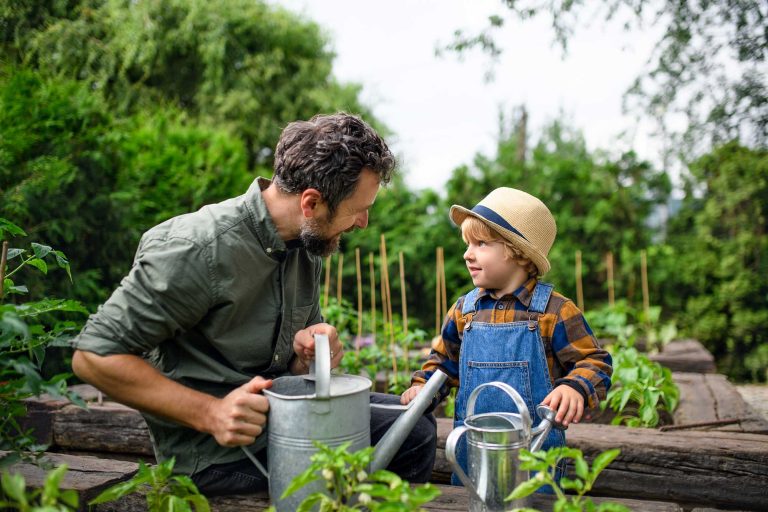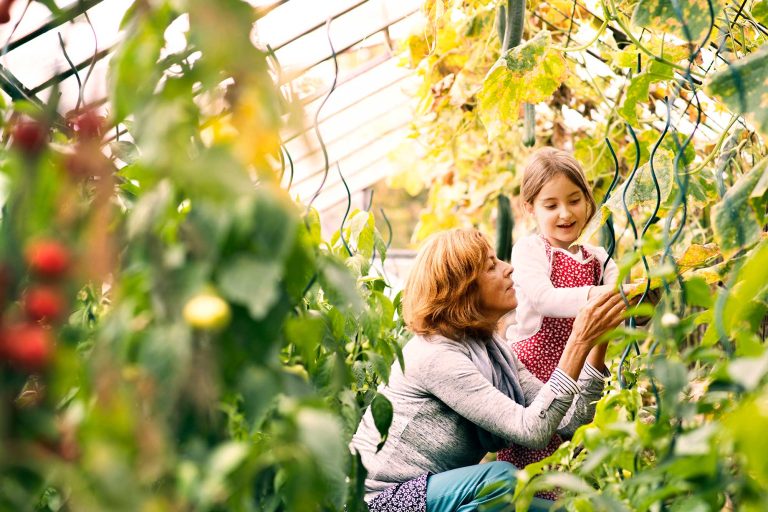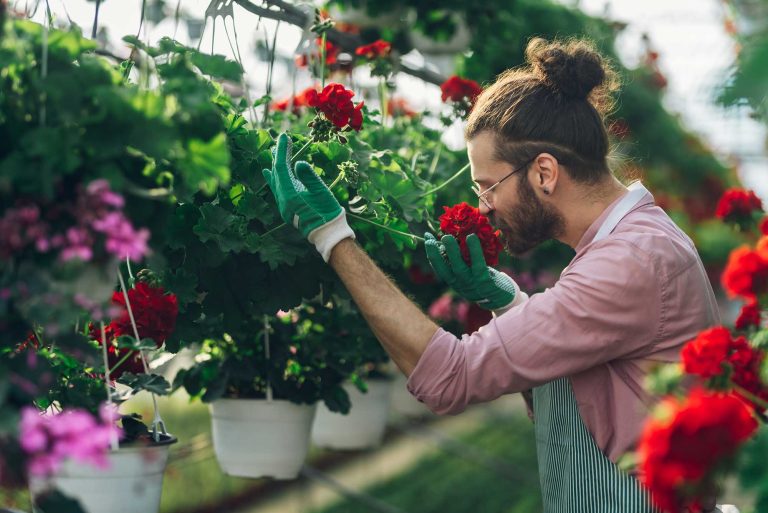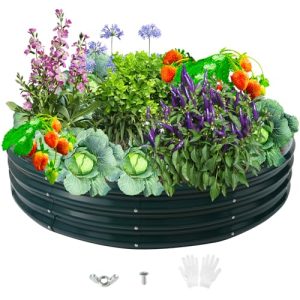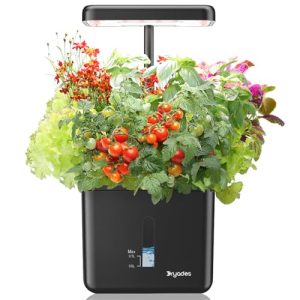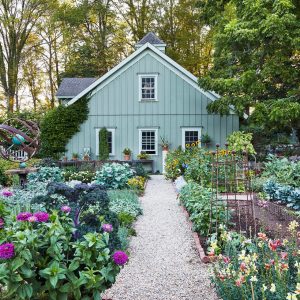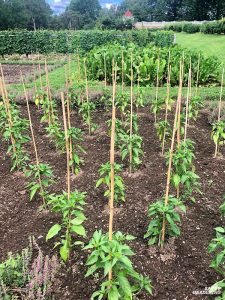Imagine stepping into your garden and seeing vibrant, healthy brussel sprouts thriving in their perfect spot. Wouldn’t that be a rewarding sight?
These little green gems are not only nutritious, but they can transform your meals into culinary delights. But here’s the catch: finding the right place to plant them is crucial. If you’re wondering where to plant brussel sprouts in your garden, you’re in the right place.
This is not just another gardening task; it’s an opportunity to maximize your garden’s potential. With the right tips, you can ensure your brussel sprouts flourish, providing you with a bountiful harvest that lasts through the seasons. Stick around to discover how to turn your garden into a brussel sprout paradise. Your future meals will thank you!
Garden Layout
Place Brussel sprouts in a sunny spot with well-drained soil. Ensure adequate space to allow growth. Rotate crops to prevent pests.
Planting Brussels sprouts in your garden can be a rewarding endeavor, but choosing the right layout is crucial for their growth and yield. Whether you opt for raised beds or traditional rows, each has its own benefits and challenges. Consider your garden space, soil condition, and personal preference to decide which layout suits you best.Raised Beds
Raised beds are a popular choice for many gardeners. They offer excellent drainage, which is vital for Brussels sprouts. You can easily control the soil quality by adding organic matter like compost. This ensures your sprouts have the nutrients they need to thrive. One advantage of raised beds is the ease of access. You can plant, water, and harvest without bending too much, which is a blessing for your back. Plus, the defined borders of raised beds help keep pests at bay. Do you have limited space? Raised beds can be customized to fit any garden, making them ideal for small areas. Just imagine the convenience of growing your Brussels sprouts in a compact, organized space.Traditional Rows
Traditional rows bring a classic touch to your garden. This layout allows for efficient use of space, especially in larger gardens. You can plant Brussels sprouts alongside other vegetables, creating a diverse and productive environment. Rows are excellent for crop rotation, which is crucial for maintaining soil health. Moving your Brussels sprouts around each season helps prevent soil-borne diseases and pests. It’s a simple strategy to keep your garden thriving year after year. The openness of traditional rows can also be beneficial. Better air circulation reduces the risk of fungal diseases, keeping your plants healthy. Plus, it’s easier to spot weeds, giving you a chance to tackle them before they become a problem. So, which layout will you choose for your Brussels sprouts? Consider your garden’s needs and your personal comfort to make the best decision.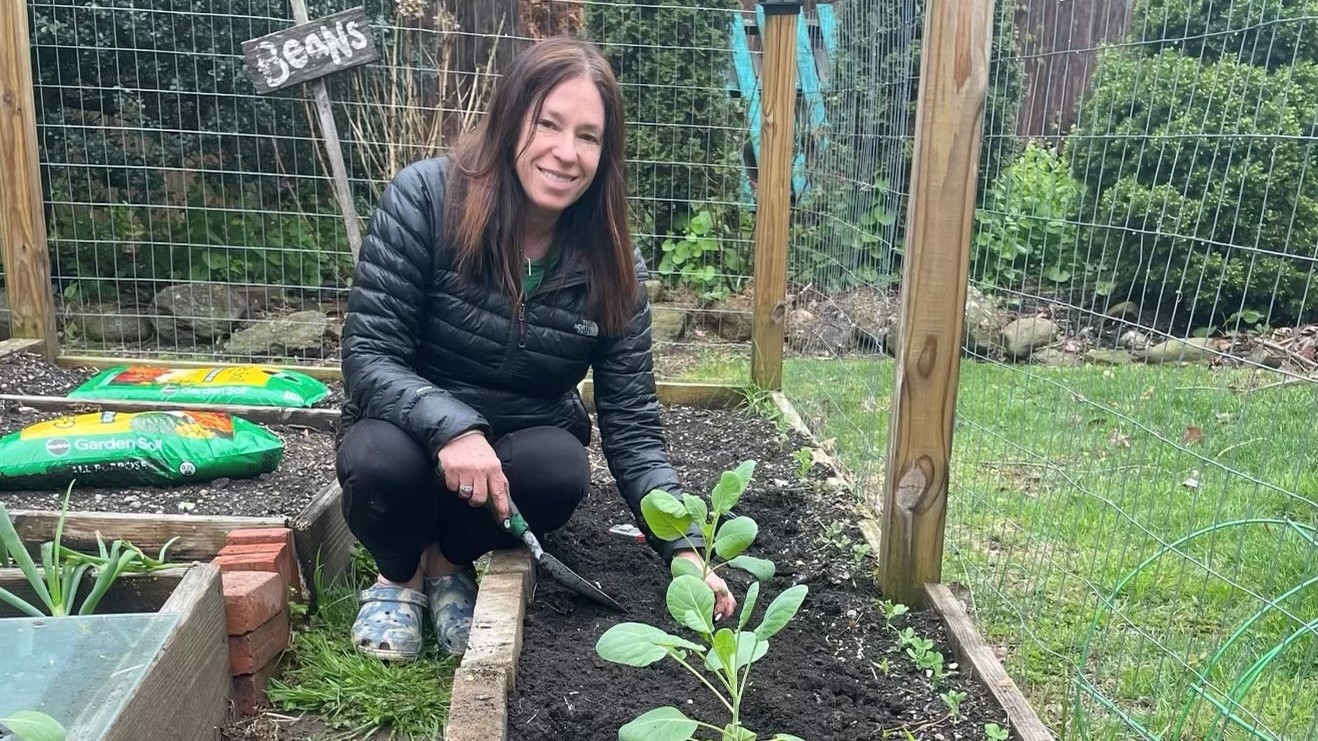
Credit: ctnyfamilylaw.com
Sunlight Requirements
Brussel sprouts thrive in spots with full sunlight for 6 to 8 hours daily. Ensure planting in well-drained soil to encourage robust growth. Position them where they receive ample sunlight and protection from strong winds.
Understanding the sunlight requirements is crucial for growing healthy Brussels sprouts. These vegetables thrive in specific lighting conditions. Ensuring your garden meets these needs can lead to a bountiful harvest.Full Sun Areas
Brussels sprouts love the sun. They need at least six hours of direct sunlight daily. Choose a spot in your garden that gets full sun. This helps them grow strong and healthy. Sunlight aids in photosynthesis, essential for plant growth. Without enough sun, Brussels sprouts may not develop properly.Avoiding Shade
Avoid planting in shaded areas. Shade can stunt their growth. It leads to smaller, less flavorful sprouts. Trees, fences, or buildings can cast shadows. Check your garden throughout the day. Ensure your chosen spot remains sunny. Brussels sprouts planted in shade struggle to reach their full potential.Soil Conditions
Brussels sprouts thrive in well-drained, fertile soil with a neutral pH. Ensure soil is rich in organic matter. Consistent moisture helps in healthy growth.
In the quest for a bountiful harvest of Brussels sprouts, understanding soil conditions is key. The soil acts as the foundation for your plants, influencing their growth and productivity. So, what makes the soil perfect for these crunchy green delights? Let’s dive into the nitty-gritty of soil conditions to set your Brussels sprouts up for success.Soil Ph Levels
For Brussels sprouts to thrive, the soil pH should ideally be between 6.0 and 6.8. This slightly acidic range encourages nutrient availability and healthy plant growth. You might be wondering, how do you check your soil’s pH level? Simple pH testing kits are available at gardening stores, giving you quick insights into your soil’s condition. Are your soil pH levels off? Don’t worry. You can adjust them with lime to increase pH or sulfur to decrease it. It’s fascinating how a little amendment can make a big difference!Nutrient-rich Soil
Brussels sprouts are heavy feeders, demanding nutrient-rich soil to support their robust growth. Ensure your soil is rich in organic matter, like compost or well-rotted manure. These additions not only provide essential nutrients but also improve soil texture and drainage. It’s amazing how a simple addition can transform your garden. Composting is a fantastic way to recycle kitchen waste while enriching your soil. Have you ever noticed how your plants respond to nutrient-rich soil? Observing their lush leaves and sturdy stems is rewarding. Don’t underestimate the power of feeding your soil well. Your Brussels sprouts will thank you with a delicious yield!Climate Considerations
Brussels sprouts thrive in specific climates. Understanding these conditions ensures a successful harvest. Knowing the climate helps you decide the best planting spot in your garden.
Temperature Tolerance
Brussels sprouts prefer cooler temperatures. They grow best between 60°F and 70°F. High heat can stress the plants, affecting their growth. Plant them early in spring or late in summer for optimal conditions. This timing helps them avoid the hottest months.
Frost Protection
Brussels sprouts can handle light frost. Frost can enhance their flavor, making them sweeter. In colder regions, use mulch to protect roots from freezing. Cover young plants with row covers to shield them from unexpected frost. This ensures they stay healthy and continue to grow.
Watering Needs
Brussels sprouts thrive when their watering needs are met with precision. Understanding how to keep the soil just right is crucial for a bountiful harvest. Watering isn’t just about how much you give, but also how well your garden can manage that water.
Drainage Solutions
Proper drainage is the backbone of successful Brussels sprouts cultivation. If your garden soil tends to hold water, consider building raised beds to improve drainage. You might also add organic matter, like compost, to enhance soil structure and prevent waterlogging.
Think about using perforated pipes or gravel beneath your planting area. These can channel excess water away, ensuring your sprouts aren’t sitting in soggy soil. Have you ever noticed how a simple change like this can make a difference in plant health?
Consistent Moisture
Consistency in moisture is key for Brussels sprouts to flourish. They appreciate a steady supply of water, especially during dry spells. Aim to keep the soil evenly moist, but avoid overwatering, which can lead to root rot.
Try using a drip irrigation system for more controlled watering. This not only conserves water but also delivers it right where your plants need it most. Have you considered how a simple tool like a moisture meter can help you monitor soil conditions effectively?
Remember, observing your garden regularly can teach you the subtle signs of when your Brussels sprouts need water. With a little attention, you can ensure your plants are always hydrated, happy, and ready to produce those delicious, mini-cabbage delights.

Credit: www.facebook.com
Space And Distance
Plant brussel sprouts in a sunny spot with well-drained soil. Space them 18 to 24 inches apart for healthy growth.
Growing brussel sprouts in your garden can be a rewarding experience, but getting the spacing right is crucial for a bountiful harvest. Proper space and distance ensure that your plants have enough room to grow strong and healthy. Understanding how to position each plant and what to plant nearby can make all the difference.Spacing Between Plants
When planting brussel sprouts, aim for at least 18 to 24 inches between each plant. This space allows for adequate air circulation, reducing the risk of diseases. It also ensures each plant has enough room to develop its full structure, leading to better sprout production. An easy way to remember this is to think of your plants needing their own “personal bubble.” Crowding them can lead to stunted growth and smaller sprouts. Would you prefer to work in a cramped office or one with a bit of elbow room?Companion Planting
Companion planting is a strategic way to maximize your garden’s potential. Certain plants can benefit your brussel sprouts by deterring pests or enhancing growth. Consider planting onions or garlic nearby, which can help repel common pests like aphids. Avoid planting brussel sprouts near pole beans or strawberries. These plants can compete for nutrients, impacting your sprouts’ growth. The right companions not only improve yield but can also bring a sense of balance and harmony to your garden. Think of it like choosing the right neighbors for your home. Some enhance your living experience, while others might cause unnecessary stress. Choose wisely for a thriving garden!Common Pest Avoidance
Brussels sprouts are a tasty addition to any garden. They are prone to pests that can affect their growth. With smart planting strategies, you can reduce pest problems. Avoiding pests ensures healthier plants and a better harvest.
Natural Barriers
Natural barriers can deter pests from your Brussels sprouts. Consider planting aromatic herbs nearby. Herbs like rosemary or sage repel unwanted insects. A physical barrier like netting can also help. It keeps larger pests away from your plants.
Beneficial Insects
Encourage beneficial insects in your garden. Ladybugs and lacewings eat aphids and other pests. These insects help protect your Brussels sprouts. Plant flowers that attract them. Marigolds and daisies are good choices. They provide a habitat for helpful bugs.

Credit: www.youtube.com
Frequently Asked Questions
Where Is The Best Spot To Plant Brussel Sprouts?
Brussel sprouts thrive in sunny locations with full sun exposure. Choose a spot that has well-drained, fertile soil. Ensure the area has protection from strong winds to prevent damage. Proper spacing is crucial, so allow at least 18-24 inches between plants for optimal growth and air circulation.
Can Brussel Sprouts Grow In Shade?
While Brussel sprouts prefer full sun, they can tolerate partial shade. However, too much shade may hinder their growth. Aim for at least 6 hours of sunlight daily. Insufficient light can lead to smaller, less flavorful sprouts. For best results, prioritize a location with abundant sunlight exposure.
What Soil Is Ideal For Brussel Sprouts?
Brussel sprouts thrive in well-drained, fertile soil rich in organic matter. Aim for a soil pH of 6. 5-7. 5 for optimal growth. Adding compost enhances soil fertility and structure. Avoid heavy clay or sandy soil. Proper soil preparation ensures healthy plant development and a bountiful harvest.
How Far Apart Should Brussel Sprouts Be Planted?
Space Brussel sprouts 18-24 inches apart to ensure adequate air circulation and growth. Proper spacing prevents overcrowding and promotes healthy development. Allowing sufficient space between plants helps reduce the risk of diseases. Follow recommended spacing guidelines for optimal yields and robust plants.
Conclusion
Planting brussel sprouts requires thoughtful planning. Choose a sunny spot with fertile soil. Ensure good drainage to prevent root rot. Space plants properly for healthy growth. Rotate crops to reduce pests. Keep an eye on water needs. Mulching helps retain moisture and control weeds.
Regular checks for pests ensure healthy plants. With care, your garden will yield delicious brussel sprouts. Enjoy growing and harvesting your own produce. Happy gardening!
